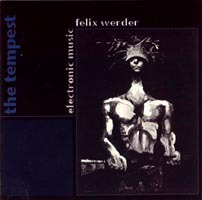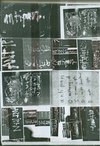
Blog : Felix Werder - Composer Behind Barbed Wire
Felix Werder - Composer behind barbed wire
##Artefacts Communique 6##
Artefacts of Australian Experimental Music: 1930 – 1973 is a landmark compilation CD documenting the forgotten pioneers of Australian music. After a hugely successful Melbourne launch, the CD is now available in select record stores in Melbourne, Brisband and Adelaide, or from http://ShameFileMusic.com
Felix Werder – Composer Behind Barbed Wire
In the face of the continuing conservatism of Australian music audiences and administrators, Felix Werder was a constant champion through the 1960s and 1970s of new and avant-garde music (Fox, 2002). Born in Berlin in 1922, he and his father fled the Second World War to Australia in 1940, where he initially spent time in an internment camp. Behind the barbed wire, Werder first began to compose.
Since the 1950s, Werder has been a leading avant-garde composer in Australia. He was also an adult education class lecturer for many years and music critic for Melbourne's The Age. He was created Member of the Order of Australia for services to music in 1976.
Werder also experimented with electronic music in the early 1970s, collaborating with other innovators in this field, including Bruce Clarke. 1971's "Oscussion", piece for synthesisers and percussion, is included on Artefacts of Australian Experimental Music: 1930 - 1973. This recording features the Australian Percussion Ensemble led by John Seal, and synthesisers played by Werder and Peter Mumme. The full version of this recording, plus three other electronic pieces by Werder, has recently been released on a CD by Pogus Records entitled The Tempest – Electronic Music, also available from Shame File Music.
Added by shamefile on 15 July 2007
Page:


